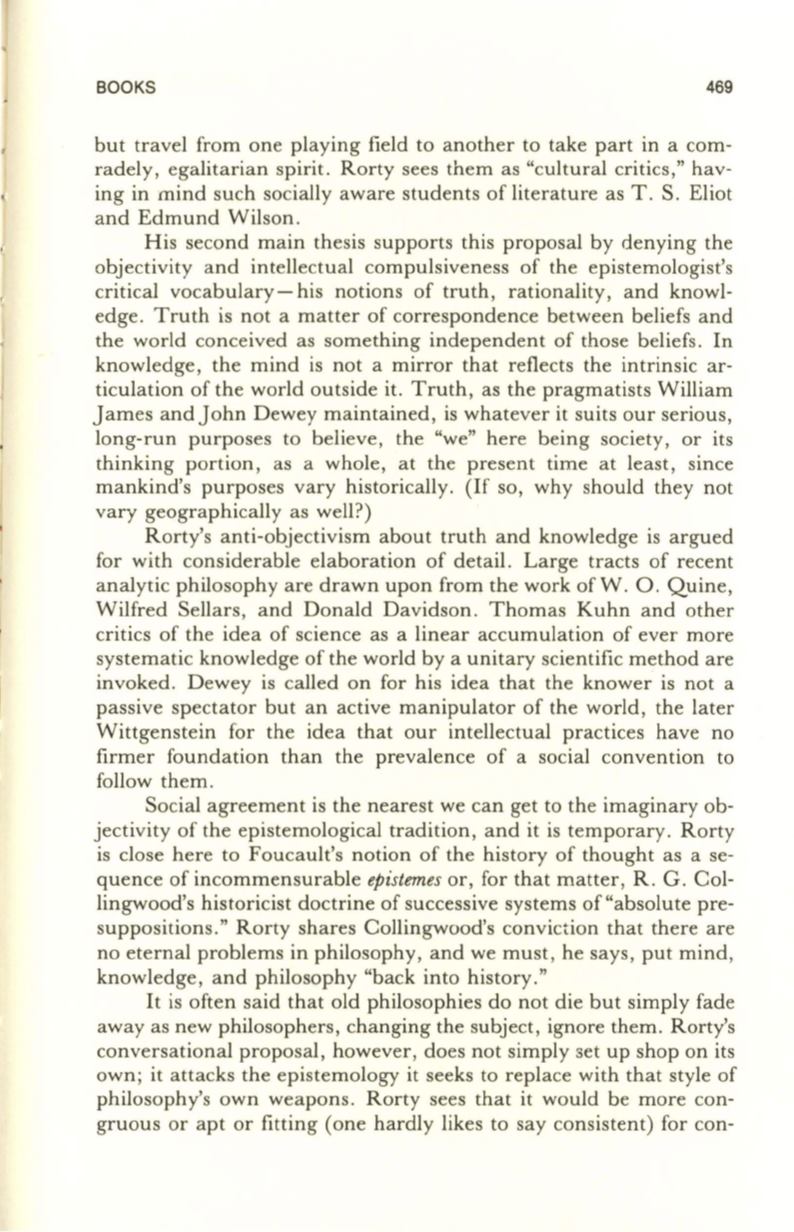
BOOKS
469
but travel from one playing field to another to take part in a com–
radely, egalitarian spirit. Rorty sees them as "cultural critics," hav–
ing in mind such socially aware students of literature as T. S. Eliot
and Edmund Wilson.
His second main thesis supports this proposal by denying the
objectivity and intellectual compulsiveness of the epistemologist's
critical vocabulary - his notions of truth, rationality, and knowl–
edge. Truth is not a matter of correspondence between beliefs and
the world conceived as something independent of those beliefs. In
knowledge, the mind is not a mirror that reflects the intrinsic ar–
ticulation of the world outside it. Truth, as the pragmatists William
James and John Dewey maintained, is whatever it suits our serious,
long-run purposes to believe, the "we" here being society, or its
thinking portion, as a whole, at the present time at least, since
mankind's purposes vary historically.
(If
so, why should they not
vary geographically as well?)
Rorty's anti-objectivism about truth and knowledge is argued
for with considerable elaboration of detail. Large tracts of recent
analytic philosophy are drawn upon from the work ofW. O. Quine,
Wilfred Sellars, and Donald Davidson. Thomas Kuhn and other
critics of the idea of science as a linear accumulation of ever more
systematic knowledge of the world by a unitary scientific method are
invoked. Dewey is called on for his idea that the knower is not a
passive spectator but an active manipulator of the world, the later
Wittgenstein for the idea that our intellectual practices have no
firmer foundation than the prevalence of a social convention to
follow them.
Social agreement is the nearest we can get to the imaginary ob–
jectivity of the epistemological tradition, and it is temporary. Rorty
is close here to Foucault's notion of the history of thought as a se–
quence of incommensurable
epistemes
or, for that matter, R. G. Col–
lingwood's historicist doctrine of successive systems of "absolute pre–
suppositions." Rorty shares Collingwood's conviction that there are
no eternal problems in philosophy, and we must, he says, put mind,
knowledge, and philosophy "back into history."
It
is often said that old philosophies do not die but simply fade
away as new philosophers, changing the subject, ignore them. Rorty's
conversational proposal, however, does not simply set up shop on its
own; it attacks the epistemology it seeks to replace with that style of
philosophy's own weapons. Rorty sees that it would be more con–
gruous or apt or fitting (one hardly likes to say consistent) for con-


